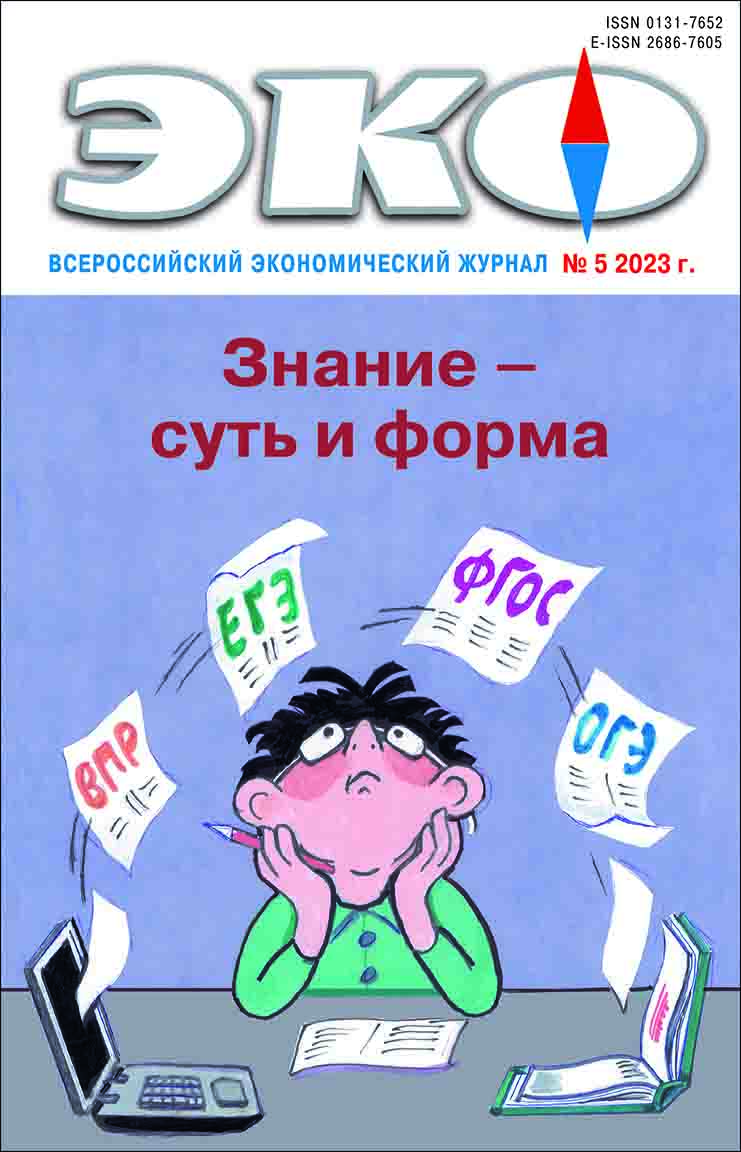MONITORING OF ECONOMIC TRANSFORMATION
Investment Program of Russian Business: Answer or Evasion from the Challenges of Time?
Published 2023-05-03
Keywords
- economic development forecast; investment projects; types of economic activity; investment structure; investment by property type
How to Cite
1.
Alekseev А. Investment Program of Russian Business: Answer or Evasion from the Challenges of Time?. ECO [Internet]. 2023 May 3 [cited 2026 Feb. 15];53(5):78-105. Available from: https://ecotrends.ru/index.php/eco/article/view/4605
Abstract
Based on the analysis of almost 40 thousand Russian investment projects in the context of seventeen industries, which are at various stages of implementation, it is shown that the introduced objects are focused on the reproduction of the economy of the resource type. In the structure of projects to be introduced in the short and medium term, a weak shift towards the creation of an economy more adequate to modern challenges is outlined. However, this trend is unstable: the projects that are in the stages of planning, pre-project planning, design and preparation for construction, not only do not reflect the course to create a relatively independent economy from the rest of the world, but, rather, indicate an attempt to return to the previous format of development. The author shows that the responsibility for future economic growth is steadily shifting in favor of the state in both sectoral and regional development. So far, the success of the Russian executive branch in solving the problem of activating the investment activity of business is low.References
- Аганбегян А. Г. Как возобновить социально- экономический рост в России? // Научные труды Вольного экономического общества России. 2020. Т. 222. № 2. С. 164–182. DOI: 10.38197/2072–2060–2020–222–2–164–182
- Алексеев А. В. Российский обрабатывающий сектор – пора за флажки // ЭКО. 2021. № 8. С. 104–126. DOI: 10.30680/ECO0131–7652–2021–8–104–126
- Гурова Т., Долженков А., Обухова Е. Почему мы бедны // Эксперт. 2022. № 3 (1236). С. 52–58.
- Казанцев С. В., Колпакова И. А., Лев М. Ю., Соколов М. М. Угрозы развитию экономики современной России: ценовые тренды, санкции, пандемия: монография / Под ред. М. Ю. Льва. М.: Первое экономическое издательство, 2021. 221 с. ISBN978–5–91292–352–4
- Крюков В. Наше руководство не знает российской экономики / интервью подготовил А. Механик // Эксперт. 2020. № 12. 16–22 марта. С. 45–49.
- Новый импульс Азиатской России / Под. ред. В. А. Крюкова, Н. И. Суслова; Сиб. отд-ние РАН, ИЭОПП СО РАН. Новосибирск: СО РАН: Изд-во ИЭОПП СО РАН, 2022. 572 с.
- Порфирьев Б. Н., Широв А. А., Узяков М. Н., Гусев М. С., Шокин И. Н. Основные направления социально-экономического развития в 2020–2024 гг. и на период до 2035 г. // Проблемы прогнозирования. 2020. № 3. С. 4
- Райнерт Э. Как богатые страны стали богатыми, и почему бедные страны остаются бедными. М.: ГУ ВШЭ, 2021. 384 с.

